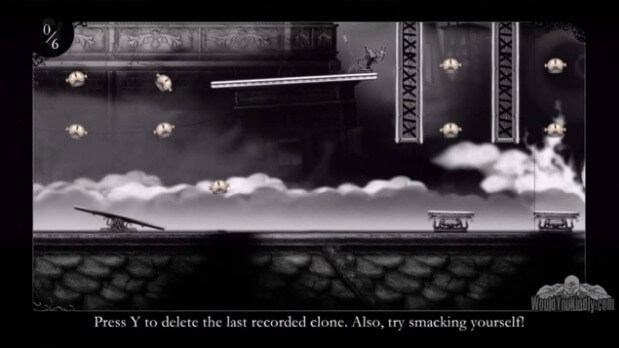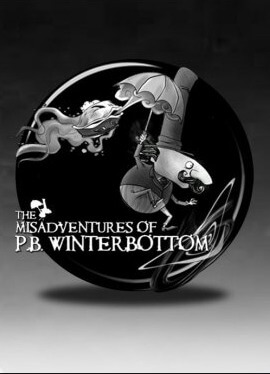
In each stage of the game, the player must help Winterbottom collect every pie present. The game’s orchestral soundtrack is fantastically done, giving a feeling of foreboding mixed with mischief. The misadventures are charming and silly, and are told in well-drawn still black-and-white image form, with accompanying silent-film-style captions and film grain.

The misadventures that ensue, however, quickly take a toll on the townsfolk. Winterbottom thinks not of the repercussions of these actions, only that there are more ambrosial pies in sight. More P.B.s means more opportunities, and methods, for pie theft. With control of time, he can create parallel clones that act along side him. So much so, in fact, that he seems to have stumbled upon a way to control time itself. He hungers insatiably for the delicious pastry known as pie. Winterbottom isn’t quite the first to do what it does, but it’s still a fairly new concept, and it does it quite well.


Indie gaming continues to thrive, and Portal was definitely an inspiration. Everyone got it in their heads that they could make the next big thing, regardless of budget or resources. Portal proved that even a bunch of whippersnappers from DigiPen could revolutionize gameplay. Also worth mentioning is the effect it had on indie games. I’ve discussed before the some of the effect that Valve’s Portal had on the gaming world.


 0 kommentar(er)
0 kommentar(er)
